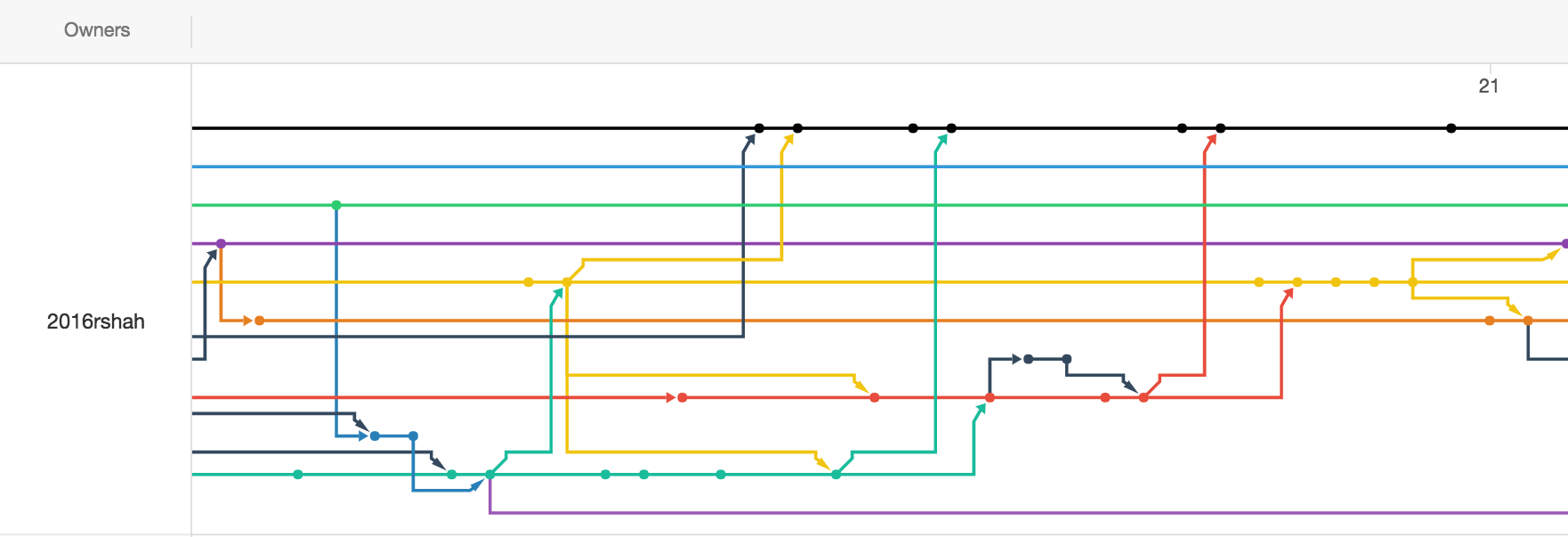Rushi Shah on 25 February 2017
Right now I’m in a Computer Architecture class. It is a super cool class and our most recent project was implementing a compiler that takes code in a C like language (henceforth called the “pi” language) and generates x86_64 assembly code. Each individual spent two weeks implementing the initial compiler that worked with basic things like while loops, functions, if statements, local and global variables, etc.
Then (and this is the crazy part) we split up into groups of 10-12 people and had a week-long code sprint to make coolest compiler we possibly could. My team was called Hot Pi and had twelve students on it total including me. I was blown away with the amount we got done in a week, and the project is now open source!

This was the part I personally worked on because I like the idea of helpful compilers. The first thing I did was set up descriptive error messages for every possible error that could be thrown (for example Cannot reference something that is not an identifier!). I carried the location in the source file for every element of the abstract syntax tree through the compiler so I could present line numbers for each of the errors the user gets.
I also paid special attention to some errors. For example I used Levenshtein distances for unrecognized identifiers to fix possible typos (did you mean return rather than retun). I also reconstructed expressions for mismatched parentheses, mismatched square brackets, and mismatched curly brackets and presented the inferred location of the missing parenthesis/bracket.
To tie it all together I used color-coded output to display the error messages in a easy-to-read and approachable way (including an error message, possibly the offending expression, and line numbers).
This is the complete list of language features we supported by the end of the week. This doesn’t include the things we had already finished individually like while-loops and if-statements. With this subset we made a pretty substantial compiler.
Error Reporting
Sound (playing the Super-Mario theme song in our demo was a crowd-pleaser)
Graphics
Structs
Scoped variables
Arrays
Pointers, Delays, and the Bell Keyword
For-loops
Types
Higher Order Functions
Comments and Random Numbers
User Defined Operators (Macros)
Switch Statements
We ended the week with a single file that was 2,862 lines of C code. In retrospect we should have split that code up into multiple files, but you live and you learn. And even though each one of us poured our blood, sweat, and tears into that file, our git workflow was surprisingly smooth.
We started by each creating an issue on Github with what we were planning to implement. This allowed everybody in the group to keep track of everybody else and make sure the same work wasn’t being done more than once.
We each worked on our own feature branches, and never pushed to master until we had resolved merge conflicts and all the tests passed. There were definitely head-aches resolving the merge conflicts, but that part of the process was just passed into the development process of a new feature rather than an after-thought.
Other teams expressed their displeasure with the large team dynamic, but things turned out alright for us somehow because we followed good git practices. And boy did I get practice teaching beginners at git how to resolve their own merge conflicts.
At the end of the week each team presented their compiler and all the neat features they had. Our presentation went splendidly and since we had at least one test for every feature we were able to run through the main tests, their output, and show that they passed.
Thanks to our professor we were given permission to publish the project on Github. It displays who contributed what and you can see this lovely branch history:

Our team also had a ton of fun and composed this poem to express our feelings:
team hot pi more like team not high amirite
more like team thought die
but then team fought rye
and then team shot high
and then team dot... sigh
and then team not bye
cuz team hot piOverall this class has been very enjoyable. First of all it has introduced me to the incredible world of low-level programming. I don’t expect to spend much time in my life doing low-level stuff, but it is very neat and I’m glad I at least have a foundation in it. Also, the class has yet again impressed upon me how incredible the Turing Scholars Honors Program is at the University of Texas at Austin. I am not only impressed with the curriculum (which has been very informative and enjoyable) but also consistently amazed at how innovative and hard-working my peers are.